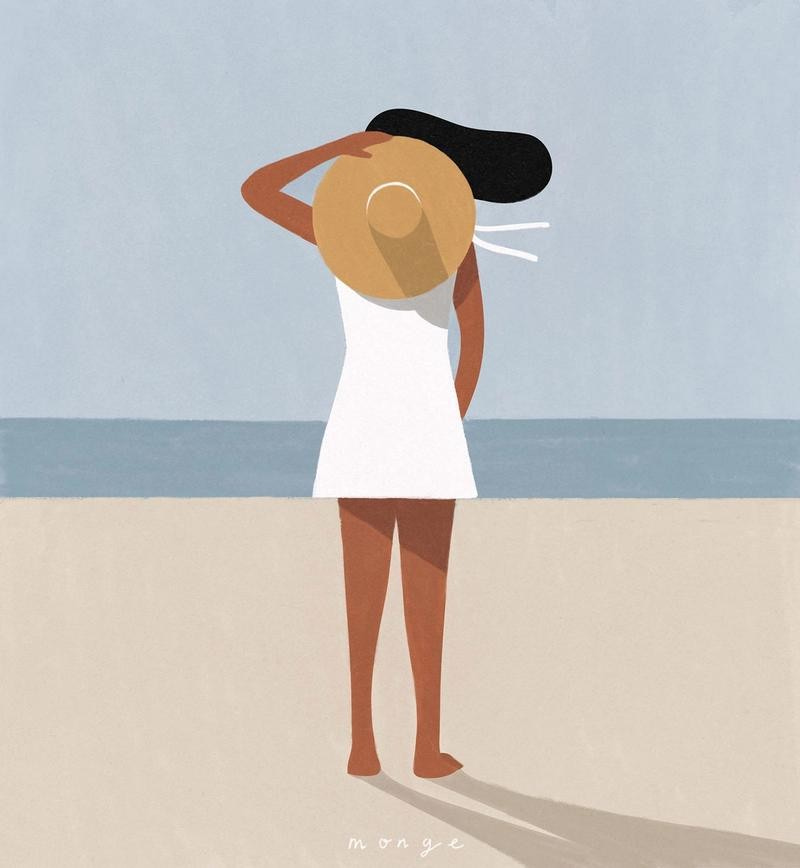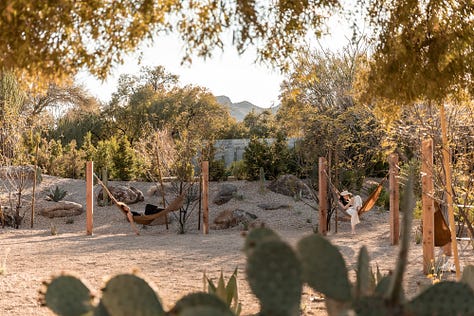Breaking Free from Boundary Guilt
How to honor your needs without feeling like you’re letting people down.

“Am I selfish, Minaa?” It’s a question someone asked me recently because they were looking for permission to set a boundary with someone. They also sought validation that, even while setting a boundary, they were still a good person, because guilt was telling them otherwise. Guilt tends to keep us stuck in a cycle of chaos, fatigue, and people-pleasing. If you’ve spent years being the reliable, “go-to” person, the moment you start saying no or stepping back, guilt can creep in. It can sound like: I’m being selfish. They’ll think I don’t care. I’m letting them down.
This guilt can feel powerful because it’s tied to identity. If you’ve built your self-worth around being available and accommodating, pulling back feels like you’re breaking some unspoken rule, one you might have learned in childhood, through cultural norms, or in past relationships.
But here’s something to remember: guilt isn’t always a sign you’re doing something wrong. Often, it’s just a signal that you’re breaking a pattern, one that may have been draining you for years. Instead of taking guilt as a cue to revert to old habits, you can use it as an opportunity to affirm your new, healthier boundaries.
How to Work Through Guilt When You Set Boundaries
1. Name the guilt for what it is
Guilt can feel urgent and convincing, but that doesn’t make it a reliable guide. When it shows up, pause and say to yourself: This is just my old pattern reacting to change. Naming it helps you create space between the feeling and your actions.
2. Anchor back to your “why”
Boundaries aren’t about shutting people out, they’re about creating space for healthy connection. Write down your reasons for setting a specific boundary, whether it’s protecting your mental health, making time for rest, or avoiding resentment. When guilt strikes, be mindful and revisit that list.
3. Expect discomfort, but don’t confuse it with danger.
Many of us were taught that saying “no” will lead to rejection or conflict, so the discomfort feels threatening. Remind yourself: It’s safe to take care of myself. Over time, your nervous system will learn that boundaries are not only safe, they’re necessary.
4. Separate other people’s reactions from your responsibility
Someone may be disappointed, but that doesn’t make your boundary wrong. Regardless of whether their feelings are valid, they are theirs to process. Your job isn’t to prevent their discomfort, it’s to be clear and compassionate in your communication.
5. Practice small, low-stakes boundaries
If the guilt feels overwhelming, start with small changes. Consider simple things you can say no to, like at a coffee shop, restaurant, or in public spaces where you have the right to exercise your choices. These small shifts help build your tolerance for boundary-setting with less emotional load.
Guilt doesn't automatically mean you're a bad friend, partner, or family member. It means you're learning a new way of relating, and it's a sign you're uncomfortable with the process. With time and continued practice, the guilt becomes something that you can manage without feeling the need to break your boundaries
Mindful Moment
Think of a boundary you recently set that made you feel guilty. What core value was it protecting: your rest, peace, focus, time, or something else? Write it down and place it somewhere visible to remind yourself when guilt tries to convince you otherwise.
I’m Teaching a Residency at CIVANA
This September 25–30, I’ll be hosting a 5-day wellness residency at CIVANA Wellness Resort & Spa in Carefree, Arizona, and you’re invited.I'll be teaching a series of workshops, including how to cultivate boundaries and overcome the guilt that comes with it.
I would love to see you there! This invitation includes a special 20% discount on your room rate. Use this special link to book, and the discount will automatically apply. For more information about CIVANA and the amenities available during your stay, visit their website. When booking, use promo code: VWGMINAAB






Connect With Me
I'm a therapist, author, and mental health educator who helps people navigate sibling and family dynamics, cultivate emotional regulation, and overcome mental health conditions such as C-PTSD, trauma, anxiety, and more. If you reside in the state of New York and you're looking for a therapist, book a 15-minute consultation with me to see if we're a good fit together. You can also learn from me by ordering a copy of my book, Owning Our Struggles, following me on Instagram, or listening to my podcast, Mindful With Minaa.



Timely post. The boundary guilt is real.
Thank you - I set some boundaries this week and needed this reminder.